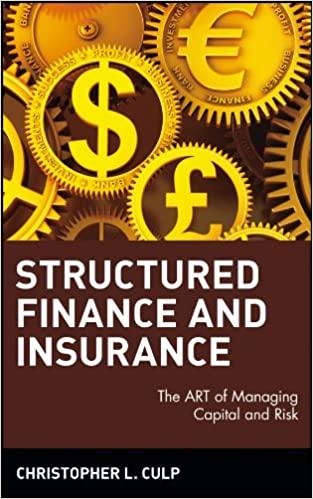Question
Quantitative Problem 1: Suppose that 1 Swedish krona could be purchased in the foreign exchange market today for $0.13. If the krona appreciated 9% tomorrow
Quantitative Problem 1: Suppose that 1 Swedish krona could be purchased in the foreign exchange market today for $0.13. If the krona appreciated 9% tomorrow against the dollar, how many kronas would a dollar buy tomorrow? Do not round intermediate calculations. Round your answer to two decimal places.
____ kronas
Quantitative Problem 2: Suppose the exchange rate between the U.S. dollar and the South African rand was 14 rand = $1 and the exchange rate between the U.S. dollar and the Israeli shekel was 1 shekel = $0.29. What was the exchange rate between the South African rand and the Israeli shekel? Do not round intermediate calculations. Round your answer to two decimal places.
______ rands per shekel
Quantitative Problem: Assume that interest rate parity holds. In the spot market 1 Japanese yen = $0.008, while in the 180-day forward market 1 Japanese yen = $0.0088. 180-day risk-free securities yield 1.05% in Japan. What is the yield on 180-day risk-free securities in the United States? Do not round intermediate calculations. Round your answer to two decimal places.
_______ %
Quantitative Problem: In the spot market, 4.04 Brazilian reals can be exchanged for 1 U.S. dollar. An Apple iPad Air costs $500 in the United States. If purchasing power parity (PPP) holds, what should be the price of the same iPad Air in Brazil? Do not round intermediate calculations. Round your answer to the nearest whole number.
_______reals
Quantitative Problem: International Machinery Company (IMC) is a Swedish multinational manufacturing company. Currently, IMC's financial planners are considering undertaking a 1-year project in the United States. The project's expected dollar-denominated cash flows consist of an initial investment of $2,100 and a cash inflow the following year of $3,700. IMC estimates that its risk-adjusted cost of capital is 17%. Currently, 1 U.S. dollar will buy 9.3 Swedish kronas. In addition, 1-year risk-free securities in the United States are yielding 4%, while similar securities in Sweden are yielding 3%.
a. If the interest parity holds, what is the forward exchange rate of Swedish kronas per U.S. dollar? Do not round intermediate calculations. Round your answer to four decimal places.
________ Swedish kronas per U.S. dollar
b. If IMC undertakes the project, what is the net present value and rate of return of the project for IMC in home currency? Do not round intermediate calculations. Round your answers to two decimal places.
NPV: _____ Swedish kronas
Rate of return: ______%
Step by Step Solution
There are 3 Steps involved in it
Step: 1

Get Instant Access to Expert-Tailored Solutions
See step-by-step solutions with expert insights and AI powered tools for academic success
Step: 2

Step: 3

Ace Your Homework with AI
Get the answers you need in no time with our AI-driven, step-by-step assistance
Get Started


